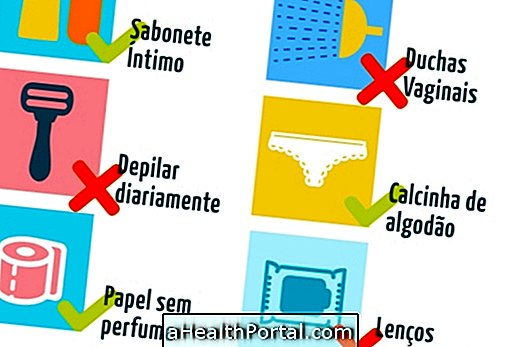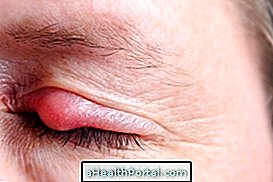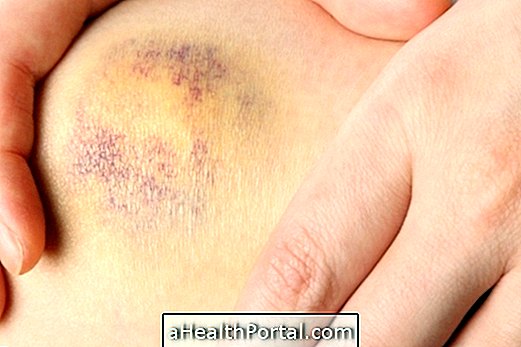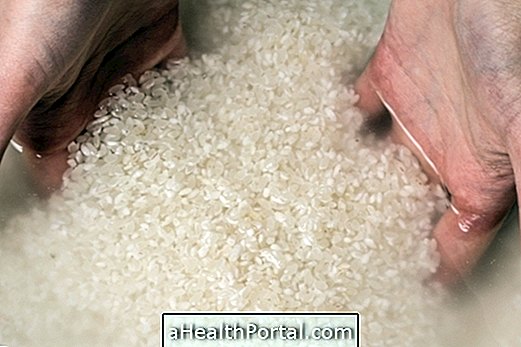Intimate hygiene is very important and should be done properly so as not to harm the woman's intimate health.
The vagina has a pH of its own with a slight acidity that should be maintained, and washing overdone, using inappropriate products or shaving it almost totally are habits that cause an imbalance in pH and natural vaginal flora and that can lead to irritations, infections or vaginal mycosis.

1. Wash the outer region of the vagina using an intimate soap
Intimate soaps such as Lucretin, Dermacyd or Intimus for example are good choices, but these should not be used all the time because they also end up damaging the vaginal flora. In addition, if possible these soaps should not be applied directly in the intimate region and should be used in small quantity, being recommended, if possible, put the product in the water with which to wash.
2. Do not use vaginal douches
Vaginal douches may also be a problem, because due to the pressure the water leaves these should not be pointed directly into the vagina. If you can, it is preferable to use a bidet or basin to wash, but if this is not possible you should use the showerhead without ever pointing directly into the intimate region or into the vagina.
3. Do not use perfumed wipes or scented toilet paper.
Wet wipes should only be used in cases of need, when you are away from home for example, and a few times a day, because when used excessively can cause dryness in the vagina and irritations, eliminating the natural lubrication of the skin.
4. Wear cotton underwear
The intimate clothing that she wears is another factor that influences her intimate hygiene, since underwear of synthetic materials hinders the perspiration of the skin and increase the accumulation of sweat which increases the appearance of diseases such as candidiasis or vaginal infections, for example. So, you should only wear cotton panties, which should be changed daily or after being swollen or showering. See the symptoms of candidiasis.
5. Do not exaggerate on epilation
Shaving almost completely or ironing razor and shaving products more than 3 times a week is also not advised as it also impairs intimate health. While almost total hair removal promotes the growth of microorganisms and causes increased vaginal discharge, facilitating the onset of disease, razor-sharp hair removal and epilation products destroy the protective layer of the skin and eliminate its natural lubrication.
How to do Intimate Hygiene after Intimate Contact
After intimate contact, it is important that you always do good intimate hygiene to avoid infection or illness. Immediately after intimate contact, you should try to urinate to prevent urinary infections, and then you should thoroughly wash the intimate area with water and only a little intimate soap, and change your panties or daily protector.
In addition, if you have a habit of using lubricants, you should avoid oils that are based on oil or silicone, as they do not come out easily with water, it can harm the vaginal flora, hampering intimate hygiene, promoting the proliferation of fungi and other micro-organisms.
Another important care is to change daily the daily protector and in cases of abundant discharge this should be changed more than once a day, being always attentive to the amount, color and smell of the discharge to inform the gynecologist. Also, whenever you notice a change in the vagina, such as a different smell, yellow or green discharge, itching or burning, you should go to the gynecologist, as these may be signs of diseases such as candidiasis, genital herpes, or urinary infections. need treatment.
Lack of proper intimate hygiene can cause inflamed lumps to appear on the skin, especially in the groin, armpit, and anus regions, causing a serious illness called suppurative hydrosadenitis.






















